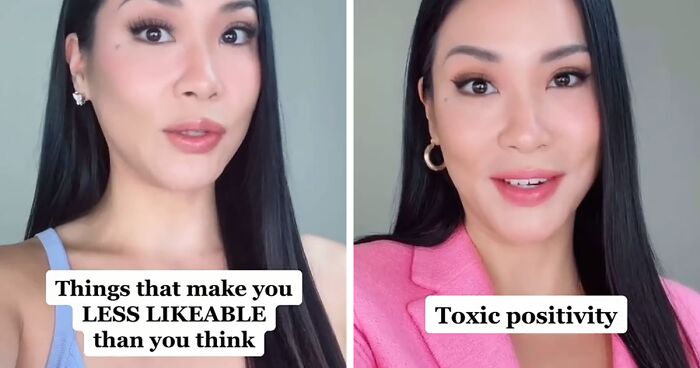
Woman Shares 5 Things People Do That Instantly Make Them Less Likeable, And Almost Everyone Is Guilty Of Them
InterviewWe might sometimes pretend that we don’t care what others think about us, but we really do want to be liked, loved, and respected. It’s all part of being a social animal—it’s in our blood. Unfortunately, some of the things that we tend to do push people away from us without us even realizing this.
Super popular TikToker Raquel Olsson from LA has been dropping some serious truth bombs about the things that make us less likeable than we think in a series of viral videos. The content creator and former national TV newscaster, who has 1.8 million followers on TikTok, went into detail about the things that we do that actually harm our chances of making a genuine connection with others while also offering advice on how to fix this. I know that I’ve been making some of these mistakes and I’d love to hear which ones you’ve been guilty of too, dear Pandas.
Raquel shared with Bored Panda that she made the TikTok video series as a way to inspire others to reflect on their habits when interacting with others. She hopes that she can help all of us increase our emotional intelligence this way. “These themes are a part of my mission as a creator—to create better communication and understanding of oneself and others through discovering our own hidden potentials,” she said. “I am fascinated by how seemingly small adjustments in mindsets can make a crucial difference in the quality of someone’s life and their relationships, and in some cases, how immediately this can take place. I aim to make these mindsets fun and accessible, and to challenge thought and start dialogue.”
She also spoke about how to overcome creator’s block and why she chose the path of a content creator below. Meanwhile, Bored Panda also reached out to Sarah Vero from ‘Action for Happiness,’ and spoke to her about happiness, how it’s linked to other people, and how we ought to balance out optimism with emotional intelligence. Read on for our double interview with Raquel and Sarah below, dear Readers.
More info: TikTok | Instagram | YouTube | RaquelOlsson.com
In a series of videos, Raquel shared some of the things that we do that make people like us less
Image credits: raquelolsson
@raquelolssonthings that make you less likeable than you think! part 1 🤖🥴 #advice #learnontiktok #tiktokpartner♬ AMD21 – GOAT x OTK
Image credits: raquelolsson
“A Harvard study showed that humblebragging is more annoying than boasting. Believe it or not, it still happens. We’ve just gotten extra good at it by now. Half of social media is pretty much humblebragging. Showing off in the form of self-deprecation is really transparent by now. Letting your accomplishments speak for themselves or your character reveal itself over time, is a lot more convincing, impressive, and attractive. Or just be direct about what you’re proud about. That’s also likeable, in a different way.”
Image credits: raquelolsson
“People do this in an attempt to be authentic, honest, and to build a stronger bond. They key is timing. Disclosing personal things too soon can make someone feel uncomfortable, because it’s almost like you’re emotionally dumping. It doesn’t feel earned and can come across slightly unhinged. Instead, open up over time. That’s when it becomes effective.”
@raquelolssonthings that make you less likeable than you think! part 3😐🤖 #advice #learnontiktok #tiktokpartner♬ AMD21 – GOAT x OTK
Image credits: raquelolsson
“Responding to every single statement with a personal story comes across self-centered. Sometimes people do this unintentionally to try to find some common ground with someone, but it actually ends up cutting the conversation short. Letting people have their moment when they tell a story is a lot more likable. Practice active listening, which means responding with empathetic questions like “That’s so cool, how did you like that?”, then following up with your related experiences.”
Image credits: raquelolsson
“Of course we all know the benefits of a positive attitude. There is nothing wrong with having one. But sometimes supporting someone means validating what they’re going through, and acknowledging that it’s tough. Otherwise it’s easy so suppress, mask, or even make someone feel guilty for their negative experiences. Instead, reassuring someone that it’s okay not to be okay and asking them how you can actually help is more effective and authentic.”
Image credits: raquelolsson
“Coming from someone who gives advice all the time, I had to learn to tone it down. Obviously the intention behind advice is mostly genuine in trying to help people. But sometimes it can come across controlling or intrusive. Or it can be driven by an underlying desire to create a sense of self-worth by influencing the actions of others. A study found that people with a high tendency to seek power, were more likely to give advice. So, I’ve learned to ask myself first, before I give my two cents to someone, whether or not that person is actually receptive in that place and time. Or I just straight up ask them first “Do you want my advice?”. And I remember to not judge or overidentify with their situation.”
The TikTok superstar also shared some great advice on how to be more likeable
Image credits: raquelolsson
Image credits: raquelolsson
“Talking about someone behind their back in a positive light shows that you’re secure with yourself and you have good intentions. It increases the likelihood that people will trust you and confide in you. And also, the positive traits that you speak about someone else are subconsciously perceived by others as traits that you also possess.”
Image credits: raquelolsson
“Being transparent about a select number of vulnerabilities makes you more relatable, self-aware, and encourages real human connection. It’s an indirect, diplomatic way of pointing out the faults in others without calling them out. And can actually be more effective in encouraging people to improve instead of calling them out. “
Image credits: raquelolsson
“Being able to poke fun at yourself comes across a lot more confident and puts others at ease to be more themselves. People tend to remember you primarily according to how you make them feel. At the end of the day, people like to be around people who are fun to be around.”
Raquel’s intuition and community help her come up with awesome content that helps improve people’s emotional intelligence
Just like other creators, Raquel faces creator’s block from time to time. Fortunately, she has ways around it and she shared some of them with Bored Panda. “Sometimes ideas for videos flow easily. Other times, I definitely go through creator block, an agonizing experience. But I’m learning to accept this cycle of creation because I find the ideas that proceed a block tend to be good. I use my intuition to come up with topics for videos initially, and am always taking note on feedback from my community in the comment sections, so when I’m lost, I lean on them,” she pointed out that any creator’s community can be a boundless source of inspiration.
For Raquel, the decision to become a content creator was about being “at the forefront of how ideas and conversations are spread today.” Her goal is to use social media for the greater good and to change the world for the better. “I’ve always loved relaying information as a reporter, so it’s a dream come true for me to be able to speak about what I find interesting and important, and connect with people who are on the same wavelength.”
Social ties and self-compassion are vital to living a happy life
“Happiness is not a solo practice, it’s about connecting to others and to the world around you. Having healthy relationships and feeling like you are part of a community are really important elements for building happiness and good mental health,” Sarah from ‘Action for Happiness’ told Bored Panda. “We all want to be liked and we all want to belong. Social ties are vitally important for humans, they are what has allowed us to survive and evolve.”
Learning about how happiness works can help us avoid stumbling into alienating behaviors that push others away. “For example, a key thing that impacts our happiness is acceptance, which means being comfortable with who we are, feeling a sense of self-worth, and being happy with our lives. People who have taken active steps towards building self-compassion and feeling good about themselves might be less likely to engage in behaviors like one-upmanship or humble bragging.”
Optimism needs to be balanced out with emotional intelligence
According to Sarah from ‘Action for Happiness,’ optimism is vital, however, it can’t be relied on in isolation. “Optimism is important, evidence shows that choosing to look for what’s good in life, increasing joy and finding things you can be grateful for can help build happiness. However, that has to be coupled with emotional intelligence which means being able to identify and get comfortable with different types of feelings both positive and negative,” Sarah said that optimism and emotional intelligence go hand in hand.
“At Action for Happiness, we make it clear that it’s ok not to be ok and all feelings are valid. For me, toxic positivity implies someone is only focusing on the good feelings and not willing to acknowledge or deal with any difficult feelings,” the happiness expert said. “Difficult feelings like sadness or frustration are important, as they are giving us a message that something isn’t right. If we ignore those messages over time we are living inauthentically, things can build up and become unmanageable, or we might snap and take things out on the people we love. There is also a risk that we cannot numb our emotions selectively, so by ignoring difficult emotions we end up compromising our ability to feel joy.”
Here’s how some internet users have been reacting to Raquel’s videos on TikTok
Raquel’s also got a whole bunch of other awesome psychology tips and tricks, as well as “sneaky hacks” on her social media pages, so be sure to check them out for new updates if you found them useful. The content creator has a whopping 1.8 million followers over on TikTok and it looks like her fandom’s going to keep on expanding.
Community, acceptance, and love are all awesome things. So there’s no two ways about it—being liked is awesome (and it doesn’t hurt your chances of survival if we’re ever in a Zombie Apocalypse).
However, there’s a difference between wanting to be liked and needing to be liked. The former is natural while the latter indicates that the person might have a lot of issues and fears revolving around rejection and exclusion.
Needing to be liked (and by extension fearing being disliked) leads to panic and desperation. And that means that you can end up doing anything and everything just to get someone’s love and attention. (Remember, Pandas: never be desperate. Ever. Even if you are, try to recognize it and conquer it.)
Some of the things that people who desperately want others to like them do include constantly putting in the effort to please everyone and a willingness to do nearly anything to achieve this, according to PsychCentral.
What’s more, if you’re unwilling to go against ‘the group,’ agree with things that you don’t believe just to keep your friends, and feel anxious when somebody disapproves of you, then you might have problems with low self-esteem. However, there’s always a healthy balance that you can strike between what Raquel listed that we ought to avoid and steering clear of putting other people’s approval above our own welfare.
174Kviews
Share on Facebook"unsolicited advice" And then proceeds to give "unsolicited advice". Ahhh, so tiktok🤦
I distinguish between clicking on a link and real life. I chose to click and the person in the link doesn't interact with me. The real life situation involves a live person telling me what to do without my having asked - I then have to interact with them (which might involve lying through my teeth: "That sounds like a great idea!").
Load More Replies...Overall, not a bad article. I tend to struggle with the "one upping people." To be honest, I'm a bit tired of hearing about TikTok, but this article is at least informational.
Good conversation starter. I could have done without 10 large, close-up pictures of this person, though.
Load More Replies...one thing. be honest! if you're shy, be shy. if you're geeky be geeky. it's much more easier to be yourself around others if you're honest. better chance also the the person who like you will likes the real you and not the one you pretend to be.
but what to do if the real you is not likeable ... asking for a frie... asking for somebody i don't like
Load More Replies...I mean, that's not exactly a revelation, is it? Nobody likes braggarts, busybodies, and self-absorbed people. I don't think anybody ever thought those are good qualities.
You mean... unless they're famous. Then there's endless articles and media on it... come on.
Load More Replies...STOP with the freaking articles showing a person's face with five words... and then I need to scroll to another picture of the face for the next 5 words. It is annoying. Just show one picture of the face and then give bullets after or something. Seriously. Stop it.
These people are desperate to have their faces out there, under any excuse. Which is what makes them unattractive and kind of sad.
Load More Replies...I love that during her unsolicited advice she says people who give unsolicited are unlikeable. lol
This is different, you read the headline and went in the article to see her advice. Plus BP postings are not one-on-one conversations where you can't escape.
Load More Replies...Okay YES humble bragging is sooooo annoying and not at all likeable. Although I have to admit, I am guilty of humble bragging sometimes :/ gotta work on that
Humble bragging? Is that like acknowledging your own positive attributes? Or showing/saying something good about yourself or something that you've done? I kinda thought that was an essential ingredient to happy self confidence, or is that a no-no now too?
Load More Replies...“Being able to poke fun at yourself comes across a lot more confident and puts others at ease to be more themselves.” - Not always. It’s now very common for people to use it to vent self-hate. And even when that’s not necessarily how someone’s using it, it’s way overused these days.
Also, self-depreciating humor is actually a coping mechanism for insecure people.
Load More Replies...Nice advice! I definitely struggle with humble bragging. Sometimes it feels like my achievements aren’t recognized, but I’m working to get better!
If you want to put your achievements out, it's probably better to say so outright. "Oh, btw, my thesis on quantum-physics was really well-approved by the committee" instead of "I don't know why everyone keeps calling me great. I only got a doctorate in quantum-physics, and literalyl anyone could do that. *theatrical back-of-hand on forehead*" (the last one was humble bragging - the first one making your accomplishment known. Stop tiptoeing - you need to strut
Load More Replies...The worst are those Horrible TIKTOK Dances, OMG. NO they are not cool.
No. The worst thing on tiktok is the constant calling out of people. This gen seems cool with losing their privacy cause they haven't really had it, so they don't respect the privacy of others. Publish vids of random junkies, alcoholics, mentally unwell, bad drivers, bad neighbours, everyone including thier parents!! This gen is the WORST for shaming and JUDGING. It's disgusting. They have no consideration of the damage they cause. This site needs shutting down. Ive been around long enough to see poison, and tiktok is so damn toxic.
Load More Replies..."spread gossip that's positive" gossip is never positive. Just. Dont.
the thing is not everyone wants to be liked or cares Screenshot...bb967c.png 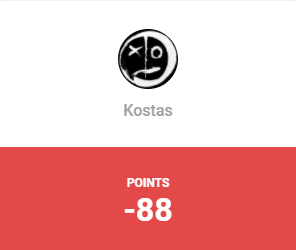
those that don't care, don't care, those that don't want to be liked can find good pointers too
Load More Replies...Oh no. I habitually do at least three of the negative ones. Aaargh! I think I’m doing it now! Can’t stop myself. (Singing ‘It’s all about meee, it’s all about me baby’) Seriously though, this was a real eye opener, good article.
The "one upping people" is kind of hard for me. I have social anxiety and the only way I know how to respond sometimes is by offering a similar story so I can show them that I either relate to them, or that I can empathize or that I understand them. I never do it to "one up them". Now I wonder if I've ever given that impression to someone....that I was trying to one up them
Foolproof way to get more attractive: Get a cat, and stop caring about people. The cat will like you, and you cannot lie to them ... well, you can, but they get it and punish you. Overall, have to agree, and admit I might have done all of the above at some point ... nut really sure. I don't do much that qualifies as social media, because I see practically only the above there, and I can find everything else somewhere else, too. Anyway, being too open freaked me out in other people, I've seen so many people abuse my trust in them that I got a bit hesitant about this, which proved right so far (I know far less people than back then, but I know them better and consider them being better - towards me, because in themselves), and most times, for your trust and your sensitive info, you won't receive anything.
Actually, reading through it a second time I can see that most people do one or more of the negative ones. I don’t feel so bad now, but will try to tone it down.
Covering 90% of the screen with your face on tiktok and pretending to know everything better is one of those things...Especially if those things are common sense..
I do overshare too soon. I'm sorry if that makes me less likable, I see how that could be kinda annoying.
You know I didn’t hate this one as much as I hate all the other posts like this.
"Don't take yourself so seriously"..........best advice for all of the snowflakes, BLM's, and F-tards on this planet!!
Another one, not heeding your own damn advice, how rather patronising this article is.
I overshare for sure but I cant say it's like a too soon sitch..its usually because things are about to get questionable and its better to answer them.
It's funny how some of the listed complaints in the article at times are from people who do the very same thing, gaslighting experts in a way by how they grumble. Think about that. Also, remind yourself that a lot of people are just really lazy and selfish and some things listed are them just making noise because good deeds or abilities seem to make them feel anxious about their own inaction.
"unsolicited advice" And then proceeds to give "unsolicited advice". Ahhh, so tiktok🤦
I distinguish between clicking on a link and real life. I chose to click and the person in the link doesn't interact with me. The real life situation involves a live person telling me what to do without my having asked - I then have to interact with them (which might involve lying through my teeth: "That sounds like a great idea!").
Load More Replies...Overall, not a bad article. I tend to struggle with the "one upping people." To be honest, I'm a bit tired of hearing about TikTok, but this article is at least informational.
Good conversation starter. I could have done without 10 large, close-up pictures of this person, though.
Load More Replies...one thing. be honest! if you're shy, be shy. if you're geeky be geeky. it's much more easier to be yourself around others if you're honest. better chance also the the person who like you will likes the real you and not the one you pretend to be.
but what to do if the real you is not likeable ... asking for a frie... asking for somebody i don't like
Load More Replies...I mean, that's not exactly a revelation, is it? Nobody likes braggarts, busybodies, and self-absorbed people. I don't think anybody ever thought those are good qualities.
You mean... unless they're famous. Then there's endless articles and media on it... come on.
Load More Replies...STOP with the freaking articles showing a person's face with five words... and then I need to scroll to another picture of the face for the next 5 words. It is annoying. Just show one picture of the face and then give bullets after or something. Seriously. Stop it.
These people are desperate to have their faces out there, under any excuse. Which is what makes them unattractive and kind of sad.
Load More Replies...I love that during her unsolicited advice she says people who give unsolicited are unlikeable. lol
This is different, you read the headline and went in the article to see her advice. Plus BP postings are not one-on-one conversations where you can't escape.
Load More Replies...Okay YES humble bragging is sooooo annoying and not at all likeable. Although I have to admit, I am guilty of humble bragging sometimes :/ gotta work on that
Humble bragging? Is that like acknowledging your own positive attributes? Or showing/saying something good about yourself or something that you've done? I kinda thought that was an essential ingredient to happy self confidence, or is that a no-no now too?
Load More Replies...“Being able to poke fun at yourself comes across a lot more confident and puts others at ease to be more themselves.” - Not always. It’s now very common for people to use it to vent self-hate. And even when that’s not necessarily how someone’s using it, it’s way overused these days.
Also, self-depreciating humor is actually a coping mechanism for insecure people.
Load More Replies...Nice advice! I definitely struggle with humble bragging. Sometimes it feels like my achievements aren’t recognized, but I’m working to get better!
If you want to put your achievements out, it's probably better to say so outright. "Oh, btw, my thesis on quantum-physics was really well-approved by the committee" instead of "I don't know why everyone keeps calling me great. I only got a doctorate in quantum-physics, and literalyl anyone could do that. *theatrical back-of-hand on forehead*" (the last one was humble bragging - the first one making your accomplishment known. Stop tiptoeing - you need to strut
Load More Replies...The worst are those Horrible TIKTOK Dances, OMG. NO they are not cool.
No. The worst thing on tiktok is the constant calling out of people. This gen seems cool with losing their privacy cause they haven't really had it, so they don't respect the privacy of others. Publish vids of random junkies, alcoholics, mentally unwell, bad drivers, bad neighbours, everyone including thier parents!! This gen is the WORST for shaming and JUDGING. It's disgusting. They have no consideration of the damage they cause. This site needs shutting down. Ive been around long enough to see poison, and tiktok is so damn toxic.
Load More Replies..."spread gossip that's positive" gossip is never positive. Just. Dont.
the thing is not everyone wants to be liked or cares Screenshot...bb967c.png 
those that don't care, don't care, those that don't want to be liked can find good pointers too
Load More Replies...Oh no. I habitually do at least three of the negative ones. Aaargh! I think I’m doing it now! Can’t stop myself. (Singing ‘It’s all about meee, it’s all about me baby’) Seriously though, this was a real eye opener, good article.
The "one upping people" is kind of hard for me. I have social anxiety and the only way I know how to respond sometimes is by offering a similar story so I can show them that I either relate to them, or that I can empathize or that I understand them. I never do it to "one up them". Now I wonder if I've ever given that impression to someone....that I was trying to one up them
Foolproof way to get more attractive: Get a cat, and stop caring about people. The cat will like you, and you cannot lie to them ... well, you can, but they get it and punish you. Overall, have to agree, and admit I might have done all of the above at some point ... nut really sure. I don't do much that qualifies as social media, because I see practically only the above there, and I can find everything else somewhere else, too. Anyway, being too open freaked me out in other people, I've seen so many people abuse my trust in them that I got a bit hesitant about this, which proved right so far (I know far less people than back then, but I know them better and consider them being better - towards me, because in themselves), and most times, for your trust and your sensitive info, you won't receive anything.
Actually, reading through it a second time I can see that most people do one or more of the negative ones. I don’t feel so bad now, but will try to tone it down.
Covering 90% of the screen with your face on tiktok and pretending to know everything better is one of those things...Especially if those things are common sense..
I do overshare too soon. I'm sorry if that makes me less likable, I see how that could be kinda annoying.
You know I didn’t hate this one as much as I hate all the other posts like this.
"Don't take yourself so seriously"..........best advice for all of the snowflakes, BLM's, and F-tards on this planet!!
Another one, not heeding your own damn advice, how rather patronising this article is.
I overshare for sure but I cant say it's like a too soon sitch..its usually because things are about to get questionable and its better to answer them.
It's funny how some of the listed complaints in the article at times are from people who do the very same thing, gaslighting experts in a way by how they grumble. Think about that. Also, remind yourself that a lot of people are just really lazy and selfish and some things listed are them just making noise because good deeds or abilities seem to make them feel anxious about their own inaction.
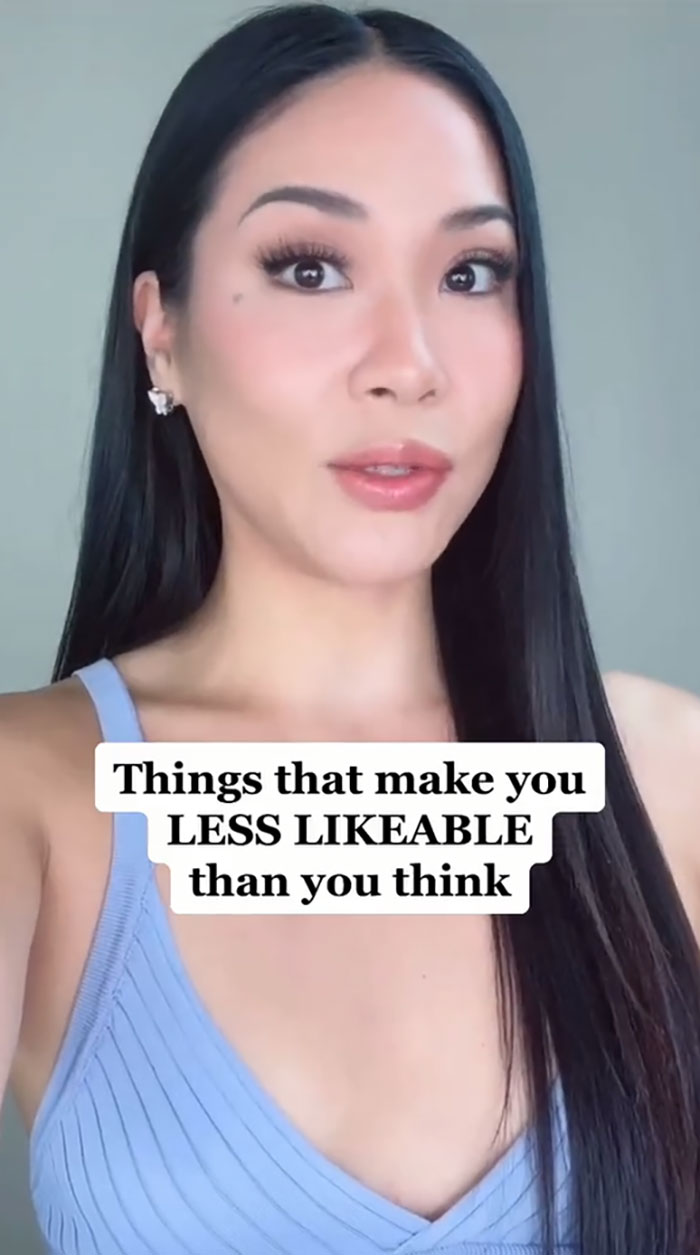

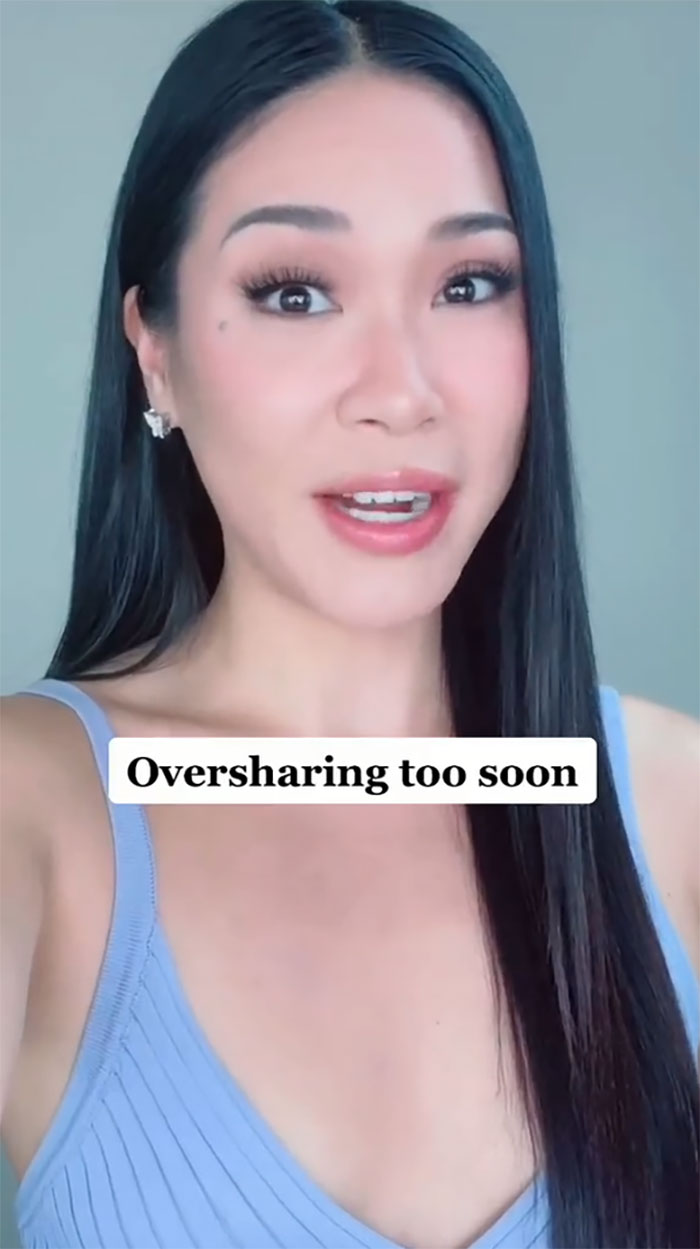
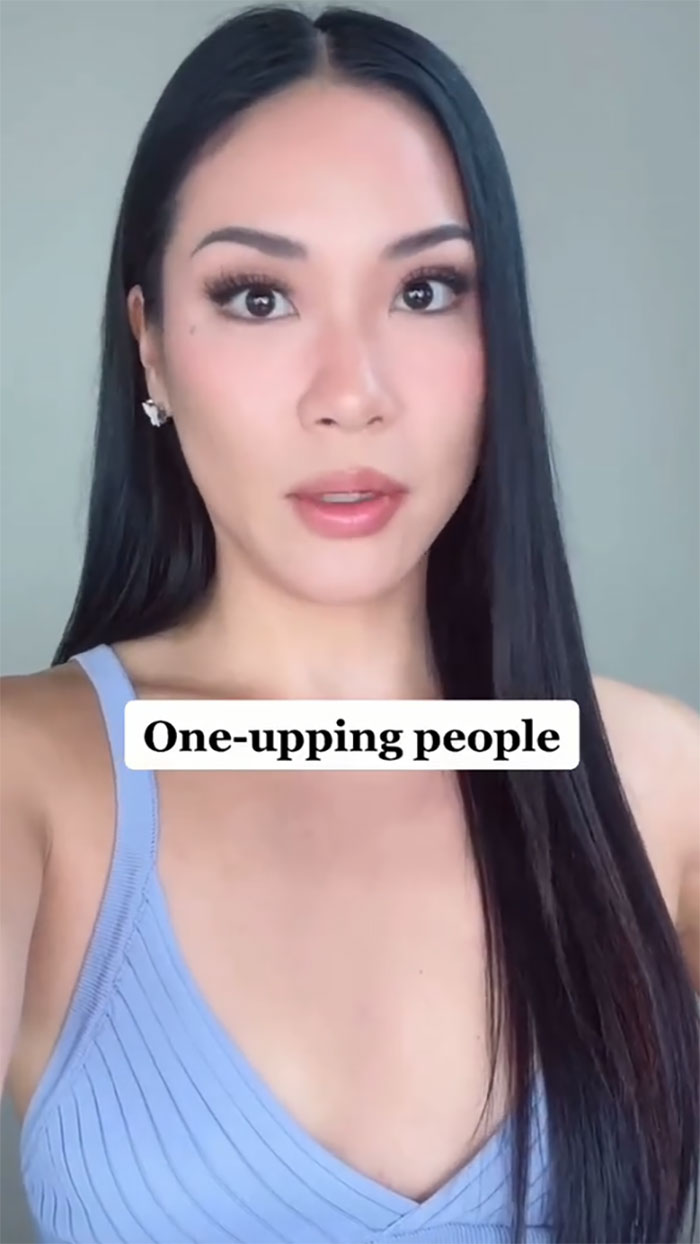
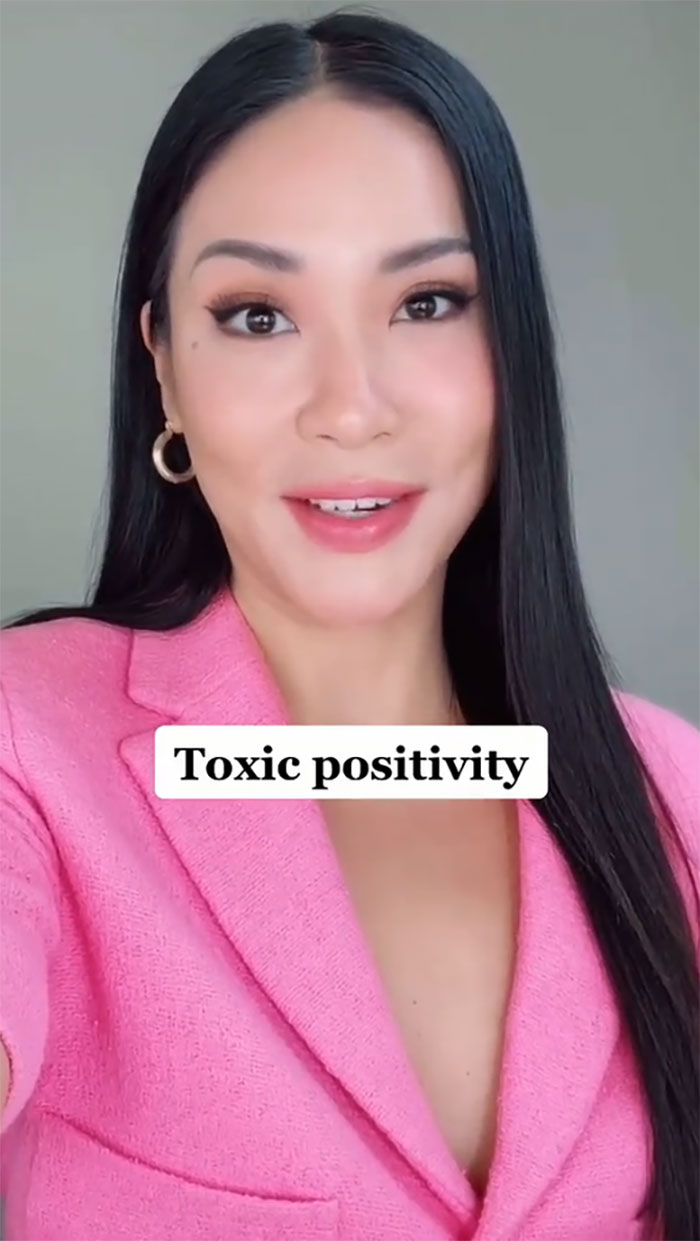

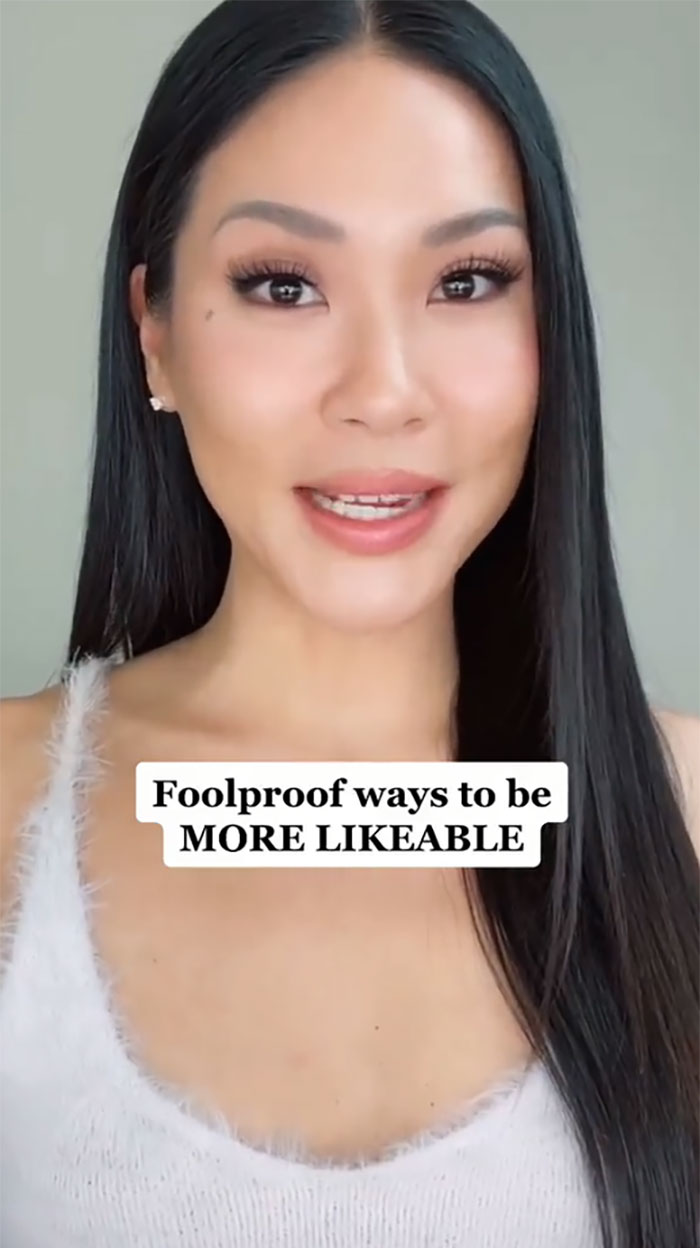
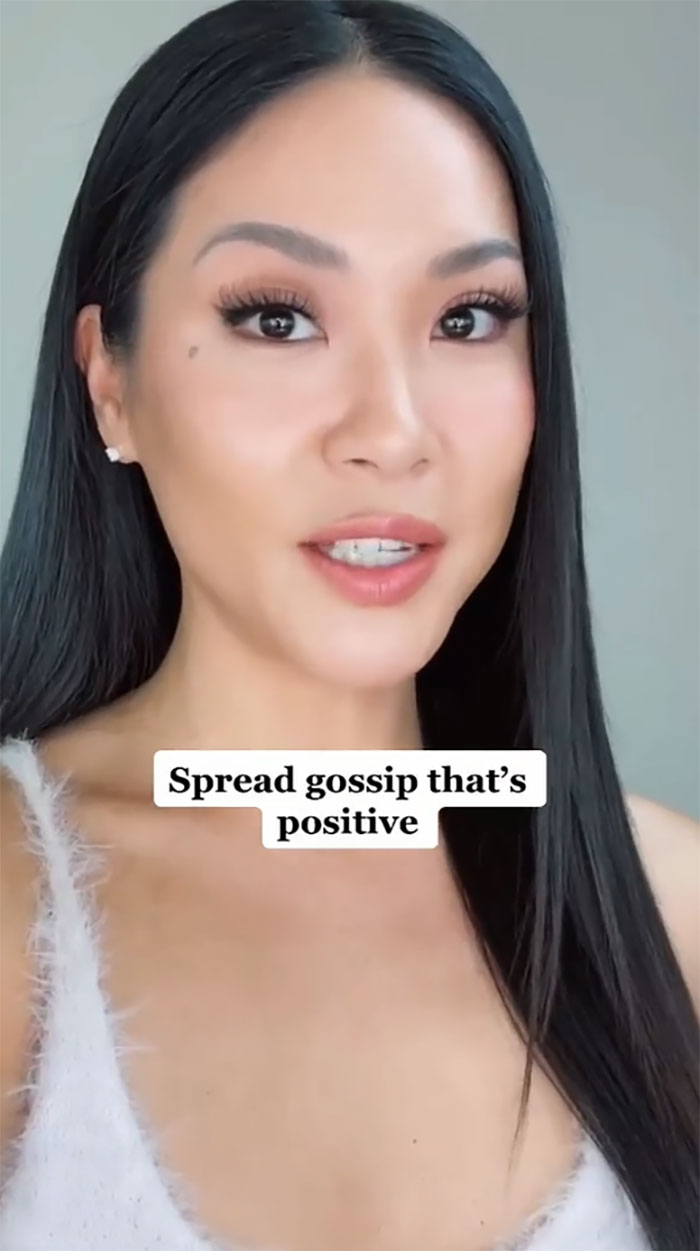

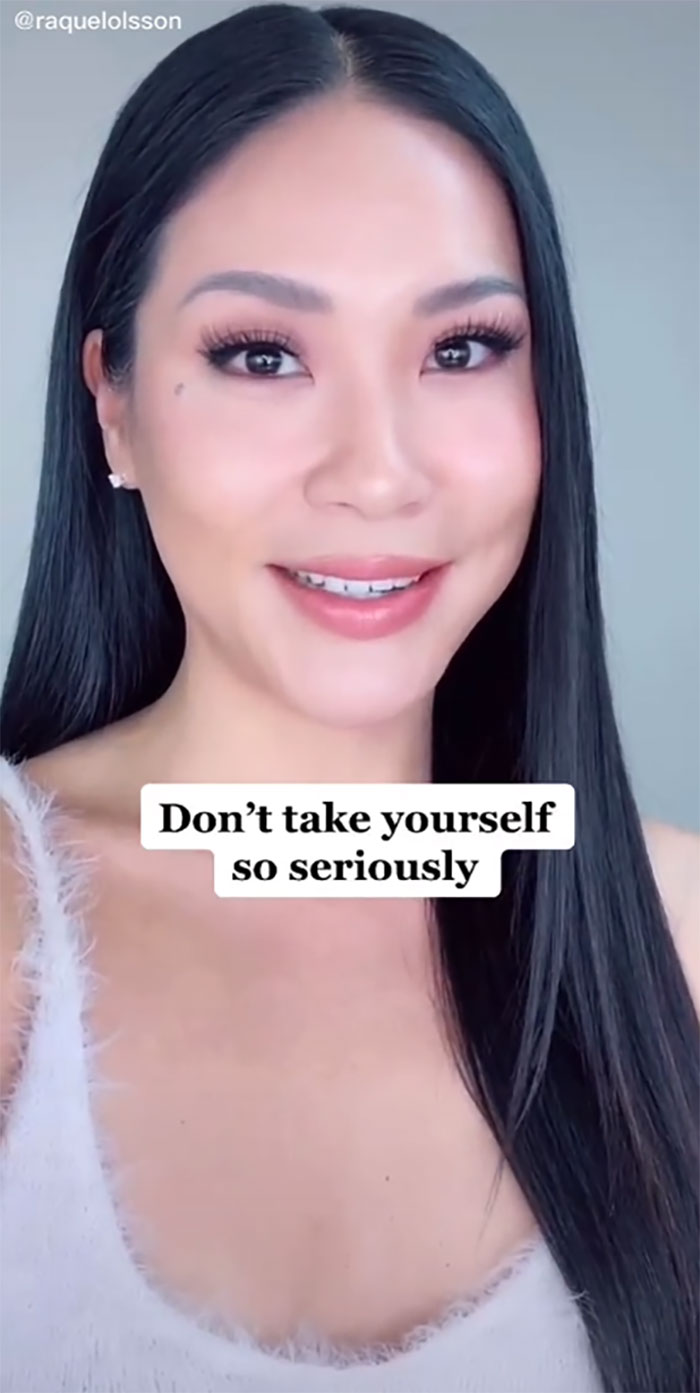













86
58